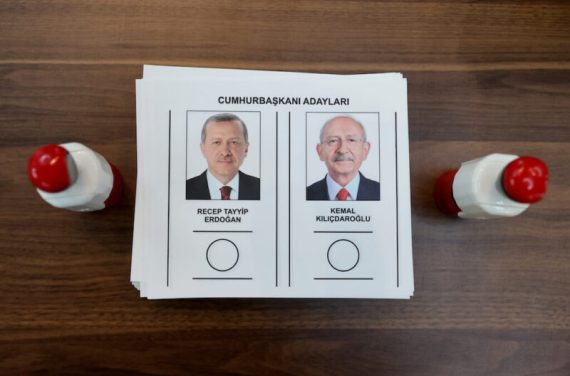E
specially after Erdoğan won the first round with 49.5% of the vote, migrants, refugees and people who have acquired Turkish citizenship through investment came under attack. The Turkish opposition, represented by its presidential candidate, Kemal Kılıçdaroğlu, lashed out against refugees, with Kılıçdaroğlu promising to send them back once he takes office. This position reflects a change from one of his earlier statements, where he said he would send them back “within two years the latest.”
The change in Kılıçdaroğlu’s discourse was expected as he aimed to win more nationalist votes from those who voted for Sinan Oğan, who won 5.2 per cent of the vote in the 14 May elections. In addition to reducing inflation and tackling the economic crisis, the ATA alliance that nominated Oğan promised to repatriate refugees, who, together with asylum seekers, number some 13 million.
Oğan decided to support Erdoğan in the run-off, while some of his alliance parties decided to either support Kılıçdaroğlu or remain neutral.
Real refugee numbers
People with knowledge of Turkish affairs know that the figure of 13 million is not accurate and that the real number is closer to six million refugees, but in the election season everything is possible.
Kılıçdaroğlu, feeling a bitter defeat in the first round, lost his temper in front of the camera, “I am here, and I will fight until the end.” In another video, he warned Turkish voters that the number of refugees, migrants, and asylum seekers will jump from 10 to 30 million if the ruling party in Turkey wins the elections. Last month, he said there are 3.6 million Syrian refugees in the country, but his zeal to win more nationalist votes made him spice up the number. This should not be the case for an accountant; however, polarization in the country seems to be the reason why the 74-year-old presidential candidate decided to manipulate the number in a matter of three weeks.
The question is how people who were granted Turkish citizenship would vote in the elections. It is hard to give the exact number of these new Turkish voters, but estimates suggest that some 210,000 Syrians have obtained Turkish citizenship, while tens of thousands of others from different nationalities have become Turkish nationals after years of working in the country, investments, or marriage. Of the 210,000 Syrians who are now Turkish citizens, some 150,000 can vote.
How do people, who obtained Turkish nationality, vote?
It is not unexpected that the majority of people who have acquired Turkish citizenship would vote for the ruling party and President Erdoğan because they feel more welcome by them, but this is not the only reason or case. Some of them don’t vote at all, while a small number vote for the Turkish opposition. The Turkish opposition’s anti-migrant discourse is the main reason why many new Turkish voters vote for Erdoğan, and the only way for the Turkish opposition to win more votes from people who gained Turkish citizenship is to soften its discourse against them. The Turkish opposition does not seem to be interested in this as it eyes the majority of Turkish voters who are in favor of sending the refugees back, whether willingly or unwillingly.
The Turkish government has adopted a policy that would encourage refugees to return to their home countries, and it did, in fact, deport some 124,000 illegal migrants in 2022, including 70,000 Afghans and 58,000 Syrians. The Turkish government argues that Syrians should be encouraged to go to safe zones in northern Syria and that sending them to areas controlled by Assad means sending them to an uncertain future. Since the Turkish government’s policy of encouraging Syrians to return to northern Syria, some 500,000 Syrians have chosen to return.
Safe return of refugees
Turkey is now in talks with Russia, Iran, and Syria, sponsored by Moscow, to find a political solution to the problem of Syrian refugees in Turkey. Conditions may be ripe for their safe return after the Turkish elections on May 28, 2023. The Turkish opposition does not have a clear plan on how to send the Syrians back, and it knows full well that the European Union, which it claimed in its election campaign would lift visa restrictions on Turkish citizens “within three months”, may object to such a move.
Recommended
Turkish Interior Minister Süleyman Soylu said his government has been implementing a plan to ensure the safe return of Syrian refugees. This plan includes creating industrial complexes, providing them with jobs, and building housing units, schools, and clinics to facilitate their return. The plan is supported by countries such as Qatar.
Soylu emphasized that most of these refugees come from Aleppo, which the Turkish “National Pact” of 1920 includes in its borders and that many of them have Turkish roots, sending a message to national voters that the policy of the Turkish government is in line with national security.
Despite their small numbers, which do not affect the outcome of Turkish elections, the majority of new Turkish citizens would not vote for the Turkish opposition, and proposals such as banning them from voting for 10 years would only create additional fear for them.
Perhaps it is time for the Turkish opposition to adopt a friendlier discourse towards people who have acquired Turkish citizenship, as they are now citizens by law and should be treated as such. The Turkish opposition should review its mistakes instead of looking for a scapegoat to justify its continued failure to defeat Erdoğan for 21 years – a record that will most likely become 26 years on May 28, 2023.





